
Monday, September 28, 2009
from Notes from a Diary, Kept Chiefly in Southern India, 1881-1886 By Mountstuart Elphinstone Grant Duff, 1886

from Autobiography of Miss Cornelia Knight, Lady Companion to the Princess ... by Ellis Cornelia Knight

A few years after this visit I became acquainted with a regular canon of the great church of Piacenza, and who, according to custom, had his own cenfessional box. One day, after the French occupation of the country, he entered the church, with the intention of taking his own seat, but was surprised at not finding the confessional in its proper place. After looking about for it in all directions, he found it in a gallery lying on its side, and on the top of it the dead body of a French soldier, which three surgeons, or surgeon's mates, of that army were busily skinning. Horrified at the sight, he asked the meaning of this ghastly proceeding, and was told that some scientific men had discovered that the human skin made excellent leather. It had, therefore, been ordered that all dead bodies should be skinned, for the purpose of providing boots and shoes for the soldiers.
Sunday, September 27, 2009
Some account of my life and writings: an autobiography (1883) by Sir Archibald Alison 1828
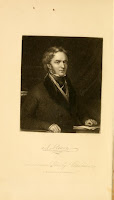
Having rejoined our carriage and the great road at Martigny, after ten days of exquisite enjoyment, we crossed the Simplon, and, after visiting the Italian lakes, repaired to Milan. Thence we went to Placentia to visit the double field of battle — of Hannibal against the Romans, and Suwarrow against Macdonald — which lies on the banks of the Trebbia, about three miles from that city. We went to the spot with Livy in our hands, and identified the features described by his graphic pen, particularly the hollow banks overhung with brushwood, unchanged after the lapse of two thousand years.
With some difficulty I made myself master of the movements of the French and Russians on the same ground in recent times ; and it was there that I first recollect figuring to myself the description of a battle on the ground where it actually occurred.
Next morning at Placentia I saw the two bronze statues of the Duke of Parma and another hero ; and I then felt for the first time that much of the effect of sculpture when in the open air consists in its being placed in a small square ; so small as to render the statue a considerable object with reference to the adjoining buildings, and to prevent it from being seen but at the proper distance, so as to have this effect preserved.
from a letter of Francis Marquess Of Tavistock To The Earl Of Upper Ossory, Paris, Sept. 12, 1763

from L'Hermite en Italie, The LATEST WORK Of MR. JOUY. TUESDAY, APRIL 13, 1824
[sul gioco del Cucù]
I had at first intended to go directly to Florence,"by the way of Placentia and Parma; but my wish to enjoy for'a longer time the society of my new fellow-traveller caused me to change my direction, and I determined to accompany him to Bobbio. ...
In the course of the evening we played the game of chuchu (pronounced kookoo) which is suitable only for numerous parties. The pack is composed of nineteen double cards, each bearing u number from one to fifteen ; on five of the cards, between five and fifteen, are represented either a prison, a cat, a horse, a bregou, or the chuchu, or crowned owl, which is the highest card. On five other cards are grotesquely painted the representations of a fool, a bucket, a yellow mask with long ears, and the word nulla; the bucket is of less value than nulla, and the yellow mask is the lowest card of all.
" When each person has received five counters, and deposited his quota in the pool, the cards of the two packs are shuffled and dealt by the person who cuts them, each player receiving only one card. If the player on the right of the dealer is not satisfied with his card, he may pass it to his neighbour, unless the card hdld by the latter confer on him the privilege of making the former keep his card, which he is then compelled to do, however bad it may be. This exchange of cards is continued throughout the whole circle, till it comes to the turn of the person on the left of the dealer. When a player meets in the hand of his neighbour, the priton, the bregou, or the chuchu, his card is stopped, and he puts a counter into the pool. If he meets the cat, his card is passed from player to player till it comes into the hands of its first owner. If he meets the hone, bis card is passed to the person immediately below him who holds the horte; when two foolt meet, the persons holding them are entitled each to take a counter from the pool, and that is called faire firinc. In short, when the circle is completed, those who hold the lowest cards are condemned to put a counter into the pool, and the game is repeated till only one counter remains. The person who holds this, wins the game.
This game was the constant amusement of the numerous parties of the Marchioness. The packs of cards are sold at Placentia, and entitled, by the manufacturers, Nuovo e dilettevole giuoco del Chuchu, o giuoco del tratto In Pia cenza; that is, the new and delightful game of the chuchu, or fool at Placentia.
from a Letter of Richard Twining dated September 1827 (from Selections from Papers of the Twining Family, 1887)
Some of the rivers which we crossed — and many thanks to the bridges by which we crossed them ! — were rolling down their beds with magnificent force. After full- twenty-four hours of storm we entered Bologna in sunshine, to an eight o'clock dinner.
Saturday, June 13, 2009
from Bref recueil des chofes rares, notables, antiques, citez, fortereffes principales par Jean-Antoine Rigaud, 1601

Belle place d'vn cofté le palais de la Iustice, de l'antre les Banquiets, & à la tefte y eft l'Eglife S. François de ladite place, vous voyez la porte du Domou le long d'vne grand rue, l'orloge en ladite place du cofté de S. François. Il ya vn couuent audit Plaifance de l'ordre S. Auguftin portant la camifade, rantez à feize mil efcus, le plus commode & beau qui ce peut voir baftie notre temps.
from Voyage de Jacques le Saige, de Douai à Rome, Notre-Dame-de-Lorette, Venise ... par Jacques Le Saige, avant 1523
De Pontenu à Florensolle a sept mille, c'est une petite bonne ville, ou il y a des beaus logis, et beau païs alentour, plain de bleds et dabres et de vignes ; nul ne croiroit sil ne le voit ; il n'est point de pareil au monde ; dela au bourcq Sainct Denis a huit mille. Il vint deux varlets au devant de nous pour annochier leurs logis , et battirent quasy lung lautre. Il nous voloient bailler ung escutau soleil en cas que ne fussiesmes bien traictiés. En le fait nous teins- mes au varlet de l'angele. Y demourasmes la au gist audit bourcq, et fusmes tres bien traictiés car nous eusmes plus de dix sortes de viandes et despendis 13 gros.
II nous fut dict que le corps Sainct Donny est audit bourcq.
Friday, June 12, 2009
from Le saint voyage de Jherusalem du seigneur d'Anglure par Ogier d'Anglure (1360?-141.), 1878
from Voyage à Jérusalem de Philippe de Voisin... par Jean de Belesta, seigneur de La Binela, ca. 1440
from The travels of ... father Montfaucon from Paris thro' Italy by Bernard de Montfaucon - 1711 [The Years 1698. 1699]

from Voyage d'un amateur des arts en Flandre, dans les Pays-Bas,... par M. de La R*** (J. de la Roche ou Roque), 1783
from État ancien et moderne des duchés de Florence, Modène, Mantoue... par Casimir Freschot, 1711

Tuesday, June 9, 2009
from La promenade utile et récréative de deux parisiens en cent soixante-cinq jours par Pierre Brussel, 1768

from Remarks on several parts of Europe, relating chiefly to their... by John Durant Breval (1680?-1738), 1738
Wednesday, May 20, 2009
from Guide du voyageur en Italie... par Jean-Marie-Vincent Audin, 1826

from Les Deux Voyageurs... par Pierre-Nicolas Anot, 1802

L'ornement le plus majestueux de son intérieur, est le double monument que le génie de Jean de Bologne y a élevé. Ce sont deux statues équestres, dont l'une représente Alexandre Farnèse, si connu dans l'Histoire de la Ligue et des révotions des Pays-Bas. Qand je considérois, il y a sept ans l'endroit où il fit jetter un pont sur l'Escaut, malgré l'indignation du fleuve je ne pensois point voir un jour la contrée qui avoit eu ce Héros pour Souverain. Voici l'inscription qu'on lit sous la statue : Alexandro Farnesio, Placentiae, Parmae etc. Duci M. Belgis devictis, Gallis obsidione levatis, Gallico , Placentia Civitas. Invicto Domino suo Equestri hac statuâ sempiternum voluit extare monumentum M. L'artiste a saisi le moment du départ du cheval. La tête est touchée avec tant de feu, que l'on croit entendre ranimât hennir. A côte de cette statue, est celle du fils de ce Prince, Rainuce le Protecteur des arts. J'allai chercher quelque Chef-d'œuvre à la Cathédrale, et j'y en trouvai car quelle est l'Eglise en Italie où on n'en trouve point? Celle-ci avoit perdu deux de ses tableaux les plus estimés, qui enrichissent actuellement le Muséum de Paris.
from Voyage d'un musicien en Italie par Auguste-Louis Blondeau, 1809-1812

from An account of divers choice remarks, as well as geographical, as historical ... by Ellis Veryard, 1701

The City is about four Miles in compafs. The Fountain in the Piazza was firft erected by Caefar Auguftus ; and the Statua Equeftris is fet up in memory of Alexander I. Duke of Parma and Piacenza. The Pafture of the adjoyning Territory is efteem'd the beft in Italy, where the Cheefe is much the fame with that of Parma. Here are like-wife divers Springs of Salt water, from which they make very fine Salt.
We faw in this City a monftrous Child, the Son of one Pietro Antonio Configlio, of the City of Bifceglia, in the Province of Apulea. His Face, Hands and Feet were fair and well proportion'd ; but all the reft of his Body, from the Neck downwards, was of a dark Colour, with white Spots intermix'd, and in divers parts cover'd with a hard, callous, and fcaly Subftance, like that of divers Fifh : But, what is yet more ftrange, this Child has fo natural a defire of throwing himfelf into the Water, that fuch as have him under their Care, are very cautious of giving him the leaft
Occafion. This Prodigy, or rather Error of Nature, is afcrib'd to the force of his Mother's Imagination, who, before and after the time of her Conception, went often to the Sea-fide to take the frefh Air, where fhe faw divers Tortoifes, and other Fifh, fporting on the Water, and brought on Shore by the Fifher men, which imprinted fo ftrong and confus'd an Idea in her Intellect as ran conftantly in her mind, and could not be remov'd 'till the time of her Delivery.
Tuesday, May 19, 2009
from A Journey to Paris in the year 1698 by DR. Martin Lister

which, however contains little worthy of attention. The country changed a good deal
to-day. It is like the flat rich parts of Effex and Suffolk. Houfes are thinner, and
the general face inferior. The inequalities which began yefterday increafe. The two
equeftrian ftatues of Alexander and Rannutio Farnefe, are finely expreffive of life ;
the motion of the horfes, particularly that of Alexander's, is admirable ; and the
whole performance fpirited and alive. They are by John of Bologna, or Moca his eleve.
... From Piacenza, after paffing the Trebbia, the rows of vines are thirty to forty
yards afunder, with heaps of props ten feet long, fet like hop-poles ; very few or no
vines trained to trees. Sleep at Caftel St. Giovanne. 26 miles.
from A journey into various parts of Europe, ... by Thomas Pennington, 1829

The city is about a quarter of a mile from the Po*, over which is a fine bridge of boats : this river about three miles off receives the river Trebbia, and is broad and rapid. The chief street, called Stradone, is very long, broad, and straight, with a handsome footway ; here is the church of St. Agostino, which has a remarkably fine facade. The Grande Place is very handsome, but its greatest ornament is two noble equestrian statues of Alexander I., the great Duke of Parma and his son Ranuccio I, in fine bronze, with suitable inscriptions, which from their length are here omitted.
...
At Placentia, we experienced much attention, several persons officiating as our conductors, one of whom to our surprise spoke English very well. As an instance of their liberality and good information, on our asking him in the way of conversation, if there were many protestants in the town, he answered. 'No, they were all christians.'
We now began to tread literally on classic ground, as the ancient Via Flaminia, which is connected by the Aemilian, going by Parma, Modena and Bologna, begins here. Although there are four gates at the different parts of the city, yet the fortifications are not strong ; the noble and ancient palace formerly inhabited by the dulces, which is a spacious building of brick, is now converted into a barrack, though there were not more than five hundred soldiers in the town ; such are the changes which a few years produce.
There are here, as in the other towns, strong marks of the devastations of the French, many churches being destroyed, and some shut up.
March 20th. — Left Placentia, at six in the morning, by a very strong gate and drawbridge, on each side of which are very deep moats. Our passports were here examined again and countersigned, a duty which the officers diligently perform. Every traveller ought to be attentive to this indispensable ceremony, as the least informality or neglect will put him to great in- convenience, and retard his journey, as we had before experienced at Turin, and were again doomed to experience at another place, as will be hereafter shewn. The road continued level, the country rich, and the men and women actively employed in agriculture. The Apennines were still on our right, the Tyrol Alps on the left, and of both we had a fine view.
from Information and Directions for Travellers on the Continent by Mariana Starke, 1829
At the distance of half a mile from Piacenza, we crossed a bridge thrown over the Po, having, to our right, the lofty mountains of the Apennine, with villages and farms at their base; and to our left a plain, watered by the abovenamed river. Midway to Fiorenzuola we traversed, on a stonebridge, a torrent called the Nura, and thence drove through the bed of the Larda, always dry in summer, and provided with a narrow bridge, over which carriages pass when the stream is swoln by winter rain. We then proceeded through Fiorenzuola, a small town where, however, there are good inns...
Thursday, May 7, 2009
from The Taylor Papers by Sir Herbert Taylor, 1838

from the Diaries of Francis Parkman, 1843

At ten in the evening we left Parma. At five in the morning we were at Piacenza. Here we stopped an hour or two. Here again the striking difference between the towns of northern and southern Italy was manifested. The people looked as grave and solemn as the brick fronts of the palaces and churches. The town was just bestirring itself. Well-dressed men were thronging to the cafés for breakfast — the shops were being opened, and the market people coming in with their produce. Tall contadini were driving flocks of goats about the street, stopping and milking one into a little tin measure, whenever some housekeeper or the servant of some café came out to demand 'latte fresco.' There was an amusing concourse of market people in the public piazza, before the lofty front of the old government palace. Cheeses, meat, butter, eggs, and piles of live hens, tied neck and heels as you see them in Canada, were spread in every direction over the pavement, surrounded by sellers and purchasers, both apparently half asleep. At a little distance were two long lines of women and men, each with a basket of eggs in hand, standing immovable with an expression of patient resignation, waiting for a purchaser. The men were little shrivelled farmers, in breeches and broad hats, with staffs in their hands, and dickeys standing up erect, like diminutive Englishmen. High above this motley swarm of helpless humanity rose the statue of some great lord of the Farnese family, seated on horse- back, holding his truncheon of command, as if at the head of an army, and looking as if one act of his single will, or one movement of his armed hand, would be enough to annihilate the whole swarm of poor devils below him.
Tuesday, April 28, 2009
from Memoir of the late John Talwin Shewell, to which is appended Notes of his ... by John Talwin Shewell, 1870
from Two Journeys Through Italy and Switzerland ... by William Thomson, 1835
Monday, April 27, 2009
from Two Hundred and Nine Days By Thomas Jefferson Hogg, 1827

n S
from A Spring in Rome and southern Italy by anonymous [New Monthly Magazine], 1869
from The Farmers' register By Edmund Ruffin, 1839
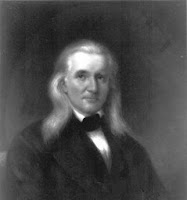
from Travels through Germany, Switzerland, Italy, and Sicily by Friedrich Leopold graf zu Stolberg, 1796
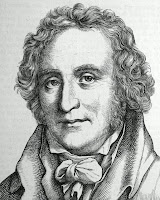
from Memoirs of mr. Matthias d'Amour by Paul Rodgers, 1836
Saturday, April 11, 2009
from The Diary of Frances Lady Shelley, 1817

On that same day one courier was stopped near Cremona and robbed of twelve thousand francs ! As they did not take the letters, they had probably received information that he was carrying money. After Piacenza we crossed the Po, over a bridge composed of fifty-two barges. This bridge was made by the French two years ago. Formerly there was a ferry.
from Sights and sensations in Europe by Junius Henri Browne, 1871
from The diary of a Russian lady; by Varvara Fedorovna (Golitsyna) Dukhovskaia, 1876 (1917)
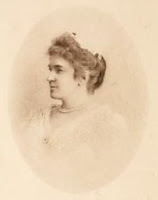
from On The Grand Tour by James Boswell, 1765
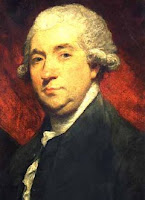
Wednesday, April 8, 2009
from Letters from France and Italy 1841 by August Bournonville
from Supplement to "Vacation Rambles" ... 1846, by Thomas Noon Talfourd

The next morning, September 20th, we started in rain on another reach of the Way, which stretched through a country as level as it was straight. The weather brightened as we proceeded, and, when we reached Piacenza, allowed us a charming walk on the ramparts, akin to that which we enjoyed at Modena. In a flat and tame country, a grass-grown mound rising in regular circlet round a city wins the peculiar interest which some objects of little beauty inspire, by the speed with which the mind establishes a familiarity with them like old acquaintanceship ; it understands at once the refreshment which the inhabitants derive from the habitual perception of this lowly form of nature; and this feeling here had more in it of affection than at Modena, inasmuch as the ramparts were decaying ; gently mouldering into green like that which surmounted them; and the city wore the air of gentle desolation.
The Duomo, with its strangely adorned porches, its monstrous pedestals, and dark, yet gorgeous variety of architecture, is a striking Lombard church ; but the noblest sight in the city is the Piazza deCavalli, a long terrace before the Palazzo Publico. The old building above it, of great length, in various styles, its lower portion of atone, its higher of brick, but harmonised by time, which has wrought strongly upon it, has something of oriental grandeur ; and at each end of the terrace in front of it is a gigantic bronze statue, one representing the Duke Alexandro, the other his son, Ranuccio, both on horseback, each said to have been cast at one jet. When this terrace is
approached from the opposite street, which is very narrow, and is, therefore, at once disclosed, it is startling in its colossal majesty ; and, associated with the stillness around it and the touches of silent decay, appears a portion of some ancient capital, rescued, like the remains of Nineveh, from the oblivion of ages. Nothing among the Medicean glories of Florence so deeply impressed me as this terrace. After four hours of rest and sight-seeing at Piacenza, we proceeded to the bank of the Po,— which had been long marked out before us like the Rhine, by rows of poplars,—crossed it in heavy rain, and, after various custom-house and passport miseries, the chief object of which, however, was intelligible, we were permitted to sup and sleep at Lodi.
Mémoires du comte Miot de Melito par André-François Miot de Melito - 1858




